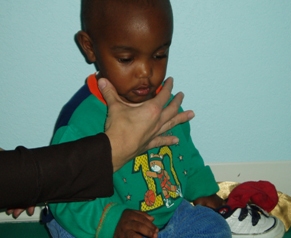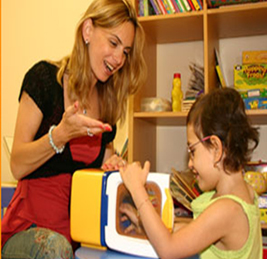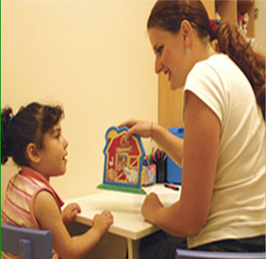Why Do Speech And Language Therapists see Children?
As communication skills are crucial for intellectual, educational, social and emotional development Speech and Language Therapists work with children and young people who have problems with understanding, expressing themselves and using communication to socialize appropriately.
|
|
Who Do Speech And Language Therapists Work with?
Speech and Language Therapists work in close partnership with the child and their family, education, social work, other healthcare professionals and the voluntary sector. Together they have a shared responsibility for meeting children’s needs. |
WHAT DOES SPEECH LANGUAGE THERAPY INVOLVE?
- Therapy Options may include:
- Group Therapy
- Individual Therapy
- Home Programme
- School Programme
- Monitor and Review
WHAT TYPE OF SPEECH AND LANGUAGE PROBLEMS DO WE TREAT?
Assessment and intervention will be
Provided for:
- Communication disorders (comprehension and expression) and swallowing disorders.
- Speech Production Problems errors.
- Voice pitch, loudness and intensity.
- Fluency Disorders.
- Hearing impairment.
- Specific Language Impairment, Autism and Intellectual Disability.
- Stroke / Head injury.
- Design and employ augmentative and alternative communication.
- Consult regarding language stimulation, inclusion.
- Strategies and teaching adaptation for students with language impairments
Following the agreed period of support the child’s progress will be reviewed in partnership with
Parents/carers and others and further recommendations and actions will be adopted according to the child’s changing needs.
DISCHARGE
The child will be discharged from therapy for one or more of the following reasons:
- Communication potential achieved
- Child not benefiting from therapy at this time
- Child/young person or family does not want to continue with therapy.
FINDING OUT MORE ABOUT OUR CENTER:
First Step
Pediatric Rehabilitation Center
Rose Cottage
Barnakyle
Patrickswell
Co. Limerick
061 320330
Visit :
www.righttherapycare.com
|
|
HOW LONG DOES A CHILD NEED THERAPY?
Every child is different. Children will need therapy for varying lengths of time. Some may require few sessions and others may require life long support.

INTERVENTION
There is a range of possible ways of supporting a child or an adult. These will always involve working with and through parents and others such as classroom assistants, speech and language therapy support workers, class teachers, learning support teachers, and nursery workers. Possible ways of supporting the child may include one or more of the following:
- Training and advice for parents/carers and other service providers (health, social work, education)
- Provision of programmes of work and ways of supporting the child in different environment and by different people
- Assessment and provision of communication aids and resources
- Involvement with educational and transition planning
- Direct therapy with child individually or in a group.

 |